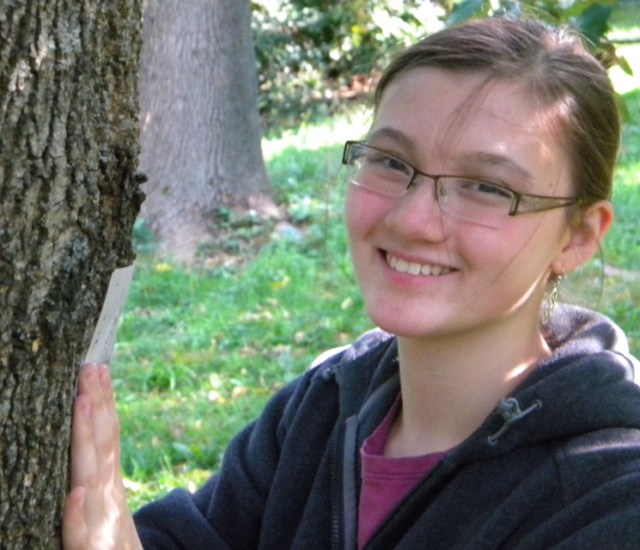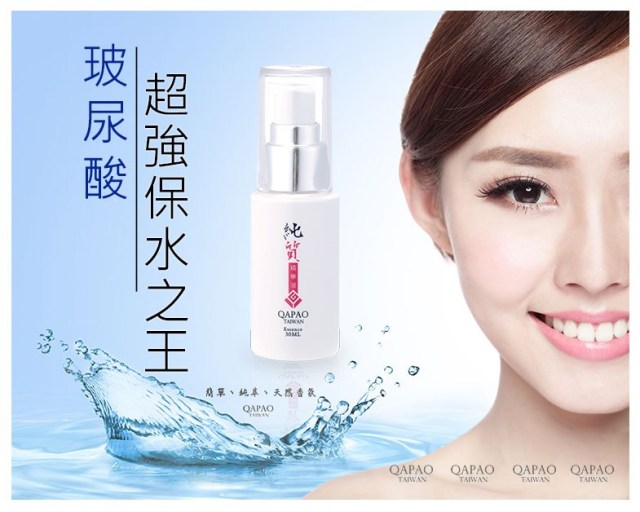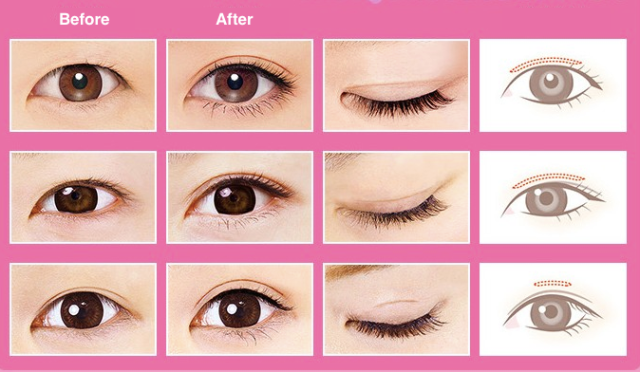There are places where I am beautiful, and places where I am not. In Chicago, where I live now, I am beautiful. In the little Massachusetts suburb where I grew up, I am not beautiful. In Taiwan, where my father’s family lives, I am not just beautiful, but so gorgeous that when I was a kid random strangers would congratulate my relatives on how pretty I was.
I don’t look different in those places. I don’t act or dress differently. I don’t wear more make up in one place or another. My body doesn’t change. But I can feel the way people look at me change. And knowing that I am considered beautiful somewhere, even if it isn’t where I live, has changed the way I understand my body and the way I think about my own identities.
Growing up in my hometown, I knew who the beautiful girls were. They were the ones gifted the prize of popularity, and they had long blonde hair or tender black curls, and they all had perfect tans all the time. The boys wanted to date them, and the unpopular girls could either dye their hair or go to tanning salons to perhaps become one of those girls. Popularity there was founded on how close you could get to that ideal beauty.
In my almost all-white Massachusetts school, the fine brown hair and Irish-pink skin my mother gave me were so ordinary, they didn’t merit a second look. You can’t throw a rock without hitting an Irish person with brown hair around there, and that kind of staunch ordinary-ness does not make for popularity.

Me as a freshman in high school.
None of my other features, luckily, were deemed remarkable either, so I escaped any bullying for my appearance. My classmates were sometimes surprised to find out I was Asian at all. Whether this speaks to my ability to pass as white or my classmates’ ignorance remains unresolved to this day.
Overall, I was fairly reconciled with my unremarkable looks, though I did desperately want to dye my hair. Blonde, red, black – any color that wasn’t brown. My mother nixed that idea, much to the consternation of my 10-year-old self. Generally, though, I had accepted that I would never be inducted into the enclave of beautiful girls. There didn’t seem to be anything to do about it, so it didn’t feel like something to get worked up about.
![]()
When I was in middle school, my family visited my relatives in Taiwan for the first time. It was my first time in my father’s homeland. It was my first time living in a place where Asianness wasn’t just a miniscule part of the community, but the norm. “Asian” was hardly even a coherent concept in Taiwan; there my Asianness was as invisible as my whiteness was in America.
Most things about Taiwan felt natural to me. The subtropical summer heat was not far off from a muggy New England August. My grandmother’s cooking was a superior version of all the Chinese food I ate at home. The 24-hour bookstores were (and are) transcendent.
The culture shock for me was the sudden discovery that I was beautiful. My grandmother said it, my relatives said it, pretty ladies in shops said it. In America, we might brush that off as politeness, but in Asia declaring someone beautiful is not a frivolous event. Beauty is a high stakes game in Taiwan. Being called beautiful in Taiwan is less a compliment than it is a congratulations. It means you made the grade, and I had made the grade in a way I never imagined was possible. I was one of the beautiful girls.
It took time for me to understand what they saw in me that could be defined as beautiful. When I looked in a mirror, nothing had changed; I was as unremarkable as ever. It was the ads in the Taipei subway that eventually taught me how I had become “a beautiful girl.” In the subway entrance by my grandparents’ apartment, there was a moisturizer ad that showed a row of dewy women who all looked exactly the same. They had oval faces with glowing moon-pale skin and noses that somehow convinced you they weren’t really there at all, and their brown hair was pulled back sensibly out of their faces.

Staring at that ad, I knew I didn’t really look like those women. My face was the wrong shape, and my nose had always been very much present on my face. But I had things in common with them, too. I was pale. My hair was brown. And it seemed like that was enough to make me beautiful.
What irony! The things that made me so ordinary at home made me extraordinary in Taiwan. My Irish features were a dime a dozen in Massachusetts, but I never met anyone in Taiwan with pale skin or naturally light hair. The things that pushed me away from the American feminine ideal brought me closer to the perfect Taiwanese woman.
Yet my newfound beauty evaporated on the plane. No one at school thought I was more attractive. No one asked me out. Like the good food and the stellar bookstores, my beauty was a vacation perk that I couldn’t take back home. While I’d certainly enjoyed being told I was beautiful, my visits to Taiwan were so brief that they never actually changed how I felt about myself.
Those brief moments of beauty were like weird but fun little ego boosts – until my cousins began to dye their hair brown and use cosmetic tape to fold their eyelids like mine. I don’t know if they ever lightened their skin, but that option was certainly presented to them. It was painful to watch my relatives, girls who I always thought were so gorgeous, change themselves to look more like the women in the Taipei subway ads. More like dull, humdrum me. Why should they have to change themselves to look more like me when they were so lovely?

The high-flown phrases I’d heard on TV or read online started to slot into place in my mind. My cousins were subject to unrealistic beauty standards. Taiwan’s beauty standards were Eurocentric, in part due to Taiwan’s relationship to colonialism. The beauty standards my cousins and I experienced were causing us to have self-hatred. And on and on and on.
It repulsed me that I had the things my cousins felt they must artificially recreate. When I went to Taiwan to visit family, the proclamations of my beauty began to feel less like pleasant surprises than reminders that Taiwan’s beauty standards were so ridiculous that the simplest way to achieve them was to have children with someone from another continent. And the U.S. was no different. When I looked at the women in ads here, I realized that, just as I had never seen a Taiwanese woman who looked like the Taiwanese ads, I’d never seen an American woman who looked like the ladies in hair salon magazines. Their beauty was just as detached from daily life as that of the moon-pale Taiwanese models.
Tragically, just as much as gravity is an undeniable physical reality, beauty is an inescapable social reality. You can’t just jump out of the Earth’s atmosphere because you want to, and, no matter how much I try to deny beauty a place in my head, it won’t go away. Every commercial I see, every movie I watch, every pair of jeans I try on is telling me how I should look. Beauty worms its way back into my life again and again.
The approach I’ve tried to take, is to understand it as well as I can. I want to catch it in the act before it affects me too much. I now know that my childhood desire for blonde hair was based in the beauty industry’s colonialist glorification of Northern European features, so I generally ignore that impulse. When I look in the mirror and start to feel down on myself about the shape of my body, I remember the fury I felt over my relatives disliking their bodies because of Taiwanese beauty standards, and I try to feel that same empathy for myself.
It doesn’t always work. I’m a human being.
![]()
In the meantime, I was surprised to find when I moved out of my little suburb that I was beautiful again. I never expected to be beautiful outside of Taiwan, but in Chicago people have actually shown interest in me, which has been quite a twist. Here it’s not my whiteness that makes me beautiful. It’s my mixed-ness. My whiteness is comfortingly familiar to prospective dates, but my Asianness is unusual and sexy. Multiracial and mixed-race people apparently have an exotic allure, especially Asian mixed people. If it sounds gross, let me assure you: It is.
Beauty is never going to be simple for me. It’s never going to be simple for anyone. I struggle with how I should think about beauty as an Asian woman, as a genderqueer woman, as a woman who loves women, and that’s just the identities I’ve been working on recently. I don’t have answers, and I probably never will. All I can do is know what it means when I wish my nose were smaller and know what I’m participating in when I decide I want to put on lipstick.
I’m trying not to let beauty control my life. We’ll see how it goes.🗺️
Edited by Carmen.


![The Travel Issue [button: See Entire Issue]](https://www.autostraddle.com/wp-content/uploads/2019/08/travel-issue-BOTTOMofPAGE_0000_1.jpg?resize=350%2C208)

Excellent piece, thank you.
Agreed – thank you!
I’m also mixed asian (indian) and white and cannot agree more with the “exotic allure” comment… it’s exhausting at times. My strategy is to date and befriend other mixed people :)
I love your straightforward, open writing style
Me 3.
Oops, that was a reply. But yeah. Very. relatable. content. and beautifully written!! thank you!!!
This is something I’ve never thought about and now I can’t believe I never have, I loved reading this!
Wow, such a compelling personal narrative and an analysis of beauty as a social construct all rolled into one. I loved this.
Loved this, I have had some similar experiences within the US and I appreciate your frank discussion of beauty standards charging by geographic area.
Holy cow- this is something I’ve really been thinking about for the past month or so during my trip through a few countries and one of my grandparents’ homeland. I’ve been intrigued with how race and beauty is perceived in different areas of the U.S. and areas of the world. For background purposes, only one of my grandparents is Asian, but my features definitely reflect more of that aspect of my heritage than my siblings’ do.
I was always aware of how I didn’t quite fit into the Caucasian beauty standards when I was younger. I was also aware that I wasn’t so Asian that I looked like my full-Asian friends, too. I didn’t think about it too much, although as I grew older, I often wished that I looked more one way or the other.
My real curiosity began when I was signing up for a community center membership in rural Ohio. I didn’t even put a race down, because I wasn’t really sure what to put anymore and didn’t think it important. The man inputting my information in the computer while reading it out loud took a look up and studied me. “Race… Asian,” he says as he continues completing my registration.
Before leaving for my trip, a family friend said “China? You’ll fit right in.” I knew full well that my looks would not. I’m not even Chinese at all.
One time, during a performance (I work in live entertainment), I was playing a well-known, illustrated Caucasian character. It was a sad part of the story, and in the midst of the near-silence, some kid that I can’t see yells “she’s Asian!”. We were near a pretty diverse major city. I wasn’t sure if I stuck out because I didn’t look like the character, or because the kid saw themself in me, or something else.
When I was in Shanghai a few weeks ago, I asked one of the locals that I was working with how she perceived my race. She said “Hmm, something mixed with white?” She later told me that I was so lucky and beautiful to have those Caucasian features. I told her that it was interesting that she perceived my looks that way, because at home I often wished I looked more like my grandparent.
I agree with you- there are no definitive answers, and beauty standards are so subjective and often based on location. Letting go of that and other beauty standards is such a challenge.
Thank you, Artemie, for this. As a person from Taiwan who spent the last year more or less around Chicago, I totally feel for you and find myself nodding at your observations and experience. Thanks again!
Thank you for exploring this in such a thoughtful, straightforward way! Your complicated experience shines a light on how arbitrary, prevalent, and powerful beauty standards are; which, in itself, is a step towards dismantling them.